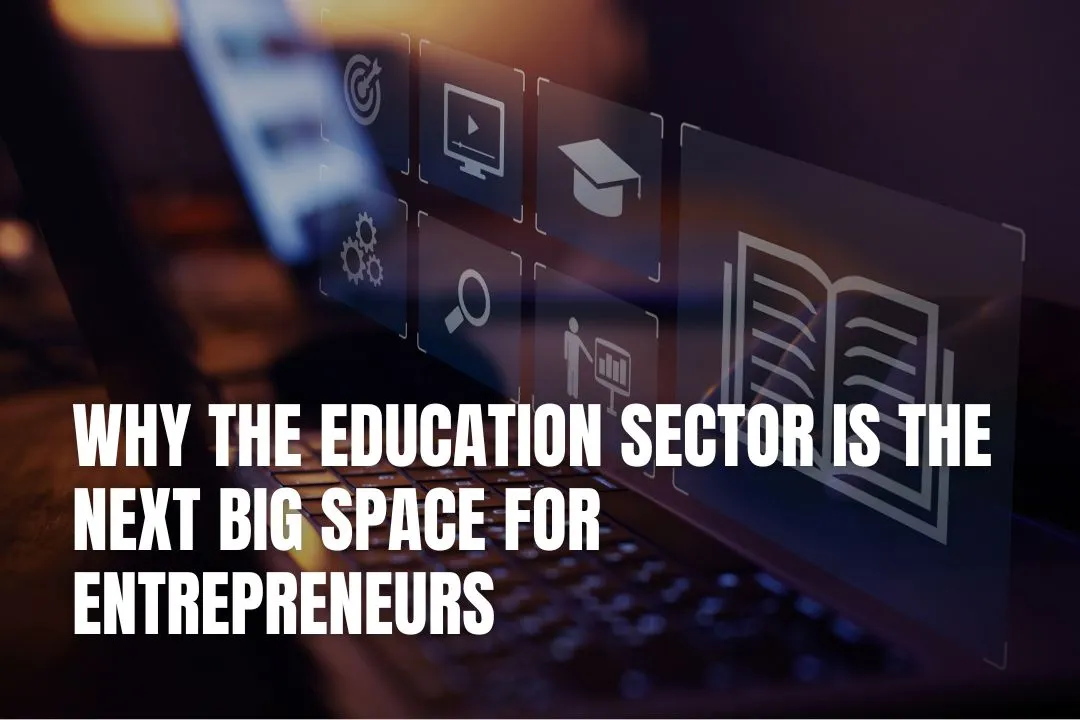
Editorial Disclaimer
This content is published for general information and editorial purposes only. It does not constitute financial, investment, or legal advice, nor should it be relied upon as such. Any mention of companies, platforms, or services does not imply endorsement or recommendation. We are not affiliated with, nor do we accept responsibility for, any third-party entities referenced. Financial markets and company circumstances can change rapidly. Readers should perform their own independent research and seek professional advice before making any financial or investment decisions.
Have you ever thought about why so many entrepreneurs are turning their attention to education?
For years, schools, governments, and traditional institutions controlled this space. But times have changed. With technology advancing, students expecting more personalised experiences, and parents seeking alternatives, the education sector has opened up for fresh ideas.
This shift has created opportunities that combine profit with purpose, making education one of the most exciting spaces for entrepreneurs today.
Education is one of the largest and most reliable industries in the world. Parents invest heavily in their children’s learning, young professionals look for ways to upgrade their skills, and companies put resources into training employees.
Unlike industries driven by short-term consumer trends, education is a constant need because people never stop learning.
The transformation of education is powered by several strong trends. These are creating fresh opportunities for entrepreneurs who want to step into the field.
The education sector offers a wide range of possibilities. Some of the most promising areas include:
Education stands out because it allows entrepreneurs to combine purpose and profit.
Building in this space means creating solutions that improve people’s lives while also generating income. The scalability is another appeal. Once a digital product is created, it can reach thousands of learners worldwide with very little added cost.
Education is also future-proof. Unlike some industries that shrink over time, learning will always remain a priority.
EdTech has become one of the most successful categories for new businesses. From gamified apps to AI-based tutoring, entrepreneurs are reshaping how learning happens. Some of the fastest-growing startups today belong to this space.
The reasons are clear:
Schools are no longer closed systems. Many are now open to working with businesses that can help improve learning experiences.
Entrepreneurs who create solutions for schools can offer:
One of the most exciting developments is the focus on teaching entrepreneurship in schools.
Many institutions now include:
Entrepreneurs who design programs to support these efforts are not just running businesses. They are also inspiring the next generation of innovators and leaders.
Learning no longer ends with a degree. In today’s fast-changing world, professionals must regularly upgrade their skills to stay competitive and relevant. New technologies, shifting industries, and evolving workplace expectations mean that continuous education has become a necessity rather than an option. This has created a thriving lifelong learning market where entrepreneurs can step in with innovative solutions that meet the demands of modern learners.
Entrepreneurs in this space can:
The appeal of lifelong learning lies in its endless demand. As industries continue to evolve, workers will always need to update their knowledge and acquire new skills. For entrepreneurs, this means building businesses in a sector that is not only profitable but also evergreen.
The education sector is no longer just about schools and universities. It has become a dynamic space full of opportunities for entrepreneurs. From EdTech startups and lifelong learning platforms to school partnerships and entrepreneurship programs, the possibilities are wide-ranging. What makes this sector unique is that it offers both profit and purpose. Entrepreneurs who enter education are not just building businesses; they are shaping how future generations will learn, grow, and succeed.
The education sector offers a unique combination of stability and innovation. There is a constant, built-in demand for learning, and recent shifts towards digital platforms, personalised education, and skill-based training have created many new opportunities for you to introduce fresh ideas.
You could explore several high-growth areas. These include online tutoring platforms, language learning apps, career-focused courses in fields like coding or digital marketing, and management software designed to help schools operate more efficiently.
Absolutely. That's one of the main attractions of the sector. You can develop products and services that help people learn and grow, which provides a strong sense of purpose, while also building a scalable and financially successful business.
Many schools are now open to partnerships. You can offer solutions like classroom management systems to save teachers time, digital assessment tools, or even extracurricular programs that teach valuable skills like leadership and creativity.
Not necessarily. While educational experience can be helpful, many successful EdTech founders come from technology, business, or design backgrounds. Your expertise in creating user-friendly products or scalable business models can be just as valuable.